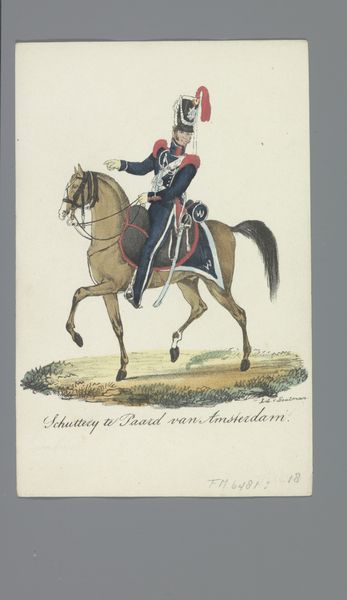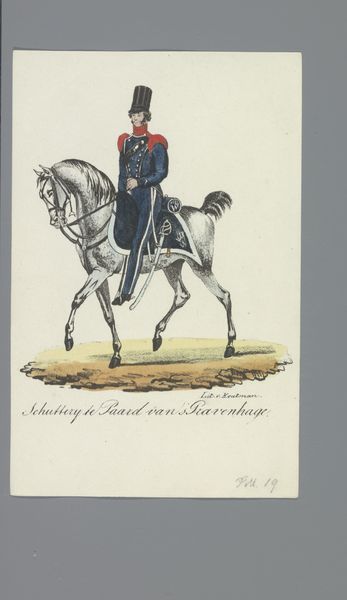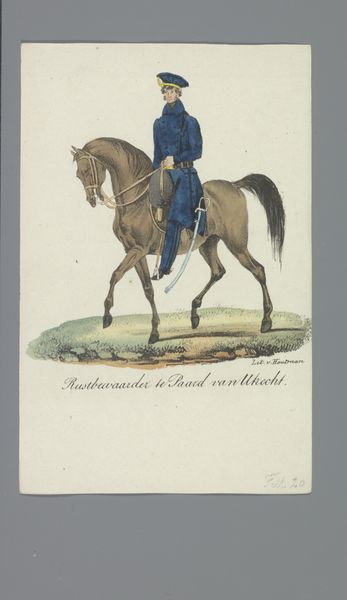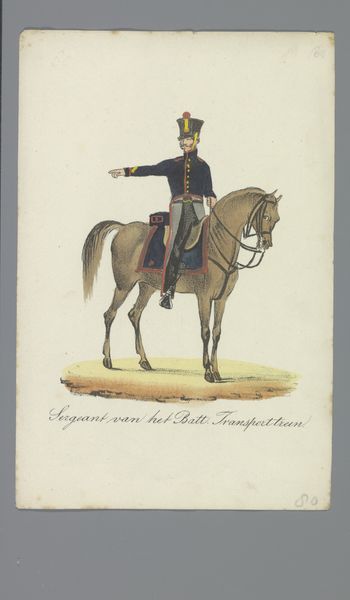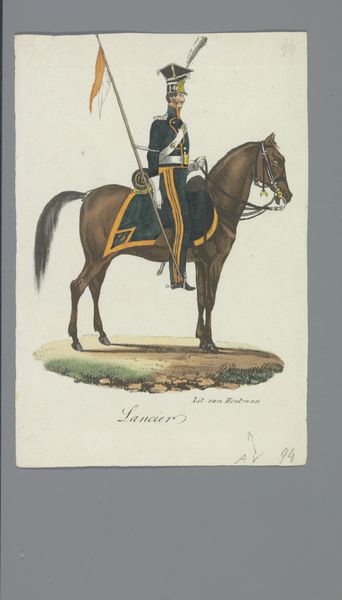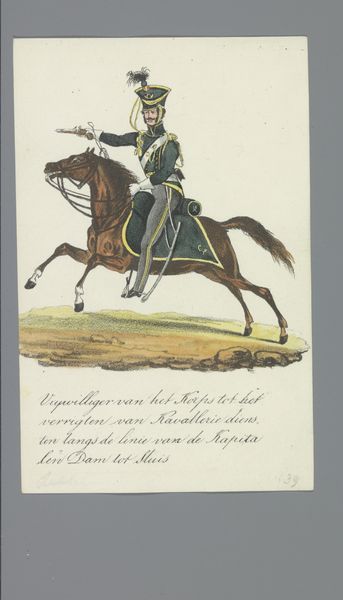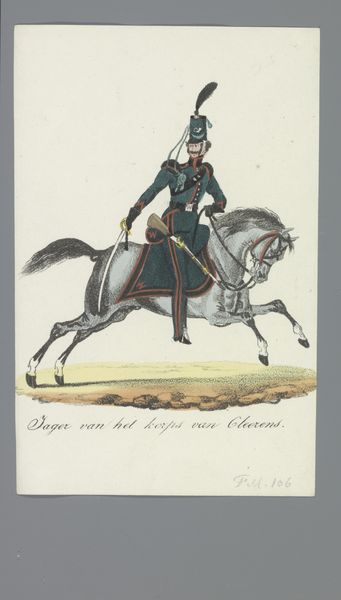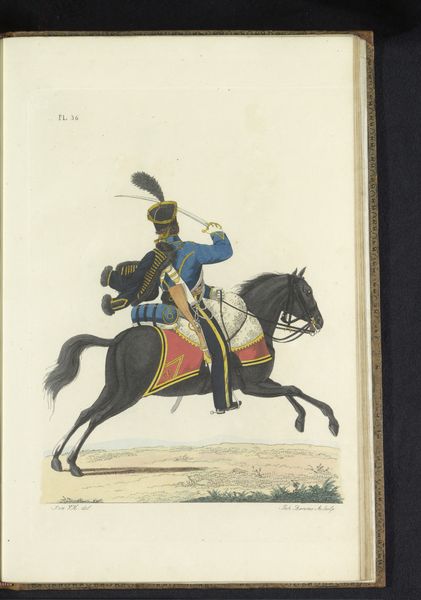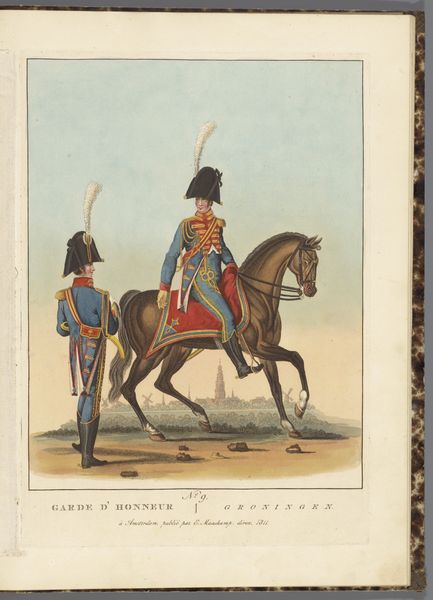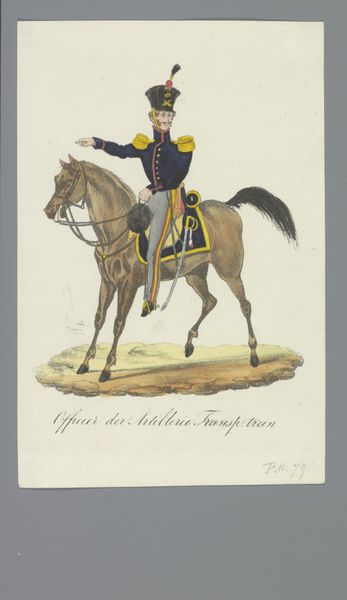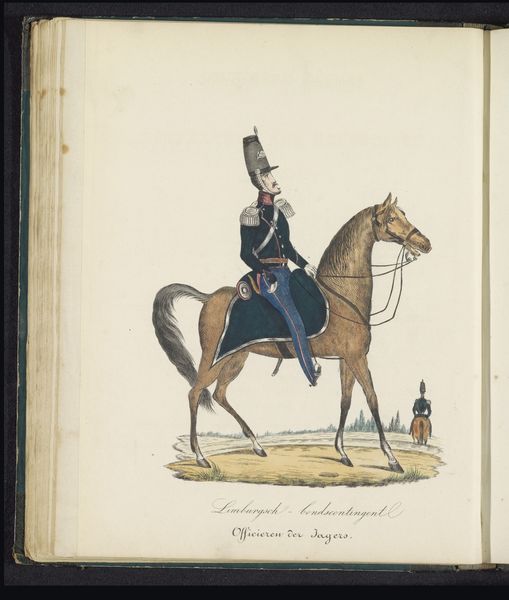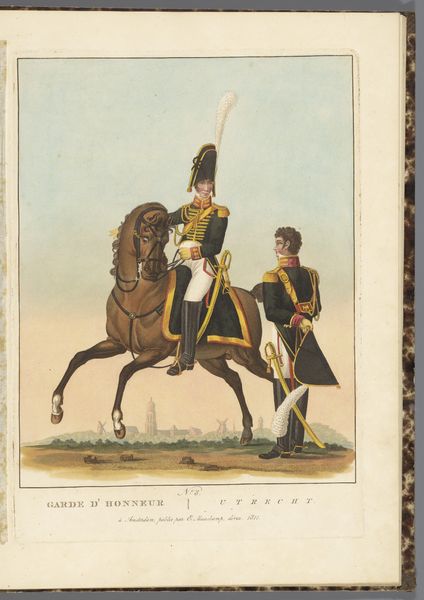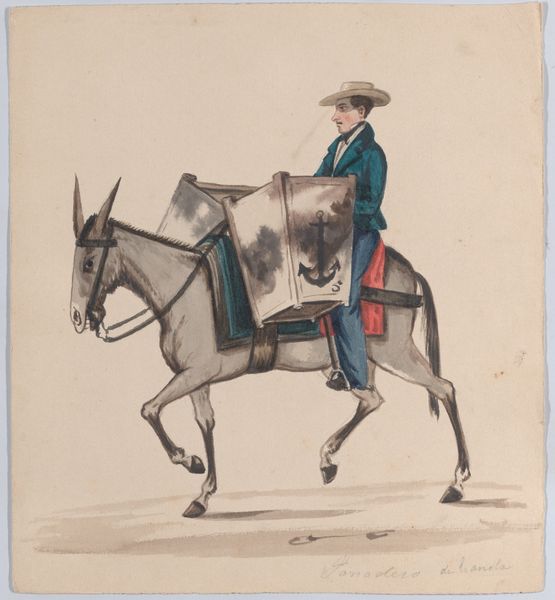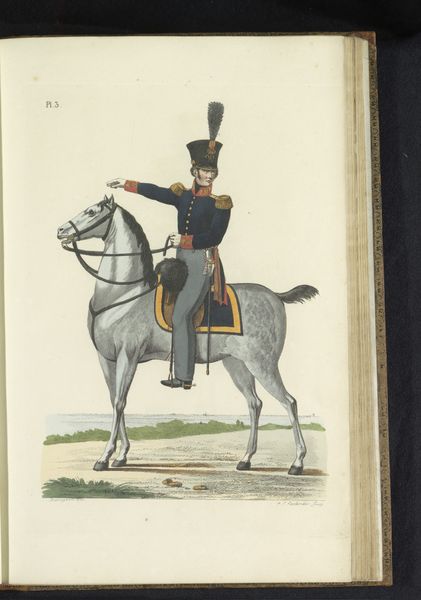
drawing, watercolor
#
portrait
#
drawing
#
landscape
#
figuration
#
watercolor
#
coloured pencil
#
romanticism
Dimensions: height 170 mm, width 110 mm
Copyright: Rijks Museum: Open Domain
Albertus Verhoesen created this watercolor called "Hussaar No. 7" in the Netherlands during the first half of the 19th century. It depicts a soldier on horseback, elegantly posed against a minimal landscape. Such imagery was common in a period marked by social stratification and burgeoning nationalism. Hussars, known for their flamboyant uniforms and military prowess, were an elite class, distinct from common infantrymen. Their image became intertwined with national pride, subtly reinforcing social hierarchies. The artist’s choice to depict the hussar with such care suggests a valorization of military culture. To fully understand this artwork, we must delve into the socio-political conditions of the Netherlands at the time. Research into military history, fashion, and the role of art in shaping national identity could shed light on the complex meanings embedded in the artwork. The interpretation of art relies on an understanding of social and institutional contexts.
Comments
No comments
Be the first to comment and join the conversation on the ultimate creative platform.
